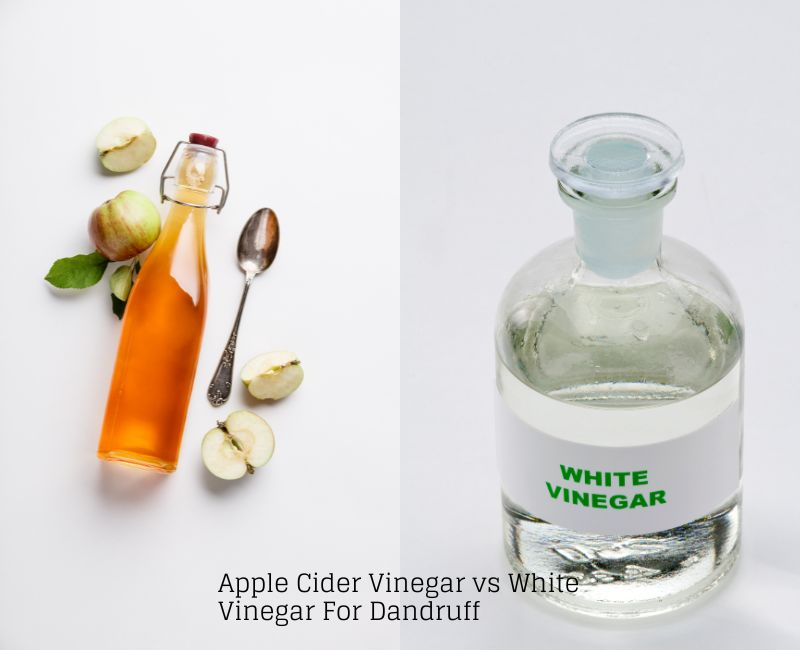How To Treat Dandruff In Dogs Naturally

If you’ve noticed your dog scratching more than usual or spotting flakes of dry skin, it could be dandruff.
While dandruff in dogs is common, it can lead to discomfort and irritation for your pet. Instead of relying on harsh chemicals, many pet owners are turning to natural remedies to treat this issue.
From enriching their diet with omega-3 fatty acids to using soothing oils and gentle shampoos, there are several effective, natural solutions to help alleviate dandruff.
How to treat dandruff in dogs naturally? Get holistic ways to treat your dog’s dandruff and promote healthier, happier skin.
Dandruff in Dogs:
Dandruff in dogs is a common condition that leads to dry, flaky skin, often accompanied by itching and discomfort. It can stem from various causes, including environmental factors, allergies, poor diet, or underlying health issues like fungal infections or parasites.
Although it may seem like a minor concern, untreated dandruff can lead to more serious problems, such as skin infections.
One of the primary causes of dandruff is dry skin, which can result from low humidity, cold weather, or over-bathing. A poor diet, lacking in essential nutrients like omega-3 fatty acids, can also contribute to flaky skin. Additionally, dogs may experience dandruff due to allergies from food, pollen, dust mites, or certain grooming products.
To identify dandruff in your dog, look for visible flakes in their fur, frequent scratching or licking, and possibly red or irritated patches of skin. If the dandruff persists or worsens, it could be a sign of an underlying condition like seborrheic dermatitis or a fungal infection.
Addressing dandruff early is important to maintain your dog’s skin health and comfort. Treating the root cause with proper care can prevent further complications and ensure your dog’s skin remains healthy and hydrated.
How to treat dandruff in dogs naturally:
Treating dandruff in dogs naturally can be an effective way to alleviate discomfort and improve their skin health without relying on harsh chemicals. Here are some natural remedies on how to treat dandruff in dogs naturally:
1. Add Omega-3 Fatty Acids to Their Diet
Omega-3 fatty acids, found in fish oil, flaxseed, and certain dog food supplements, help promote healthy skin and reduce dryness and flakiness. Adding omega-3-rich foods to your dog’s diet can improve skin hydration and overall coat condition, reducing dandruff over time.
2. Use Coconut Oil
Coconut oil is a natural moisturizer with antibacterial and antifungal properties. Apply a small amount of coconut oil directly to your dog’s skin or mix it with their food. It helps hydrate dry skin, soothe irritation, and reduce flakiness.
Apple Cider Vinegar Rinse
A diluted apple cider vinegar rinse can help balance your dog’s skin pH, prevent dandruff, and reduce itching. Mix one part apple cider vinegar with one part water and gently rub it into your dog’s coat after a bath. Be cautious not to apply it to open wounds or sensitive areas.
Aloe Vera
Aloe vera is known for its soothing and healing properties. Apply pure aloe vera gel to your dog’s skin to reduce inflammation and help heal irritated areas. Make sure to use organic aloe vera without additives.
Oatmeal Baths
Oatmeal is a natural anti-inflammatory and can soothe your dog’s itchy, flaky skin. Grind plain, uncooked oats into a fine powder and mix with warm water to create a soothing bath. Gently bathe your dog, allowing the oatmeal to sit on the skin for a few minutes before rinsing.
Regular Grooming
Regular brushing and grooming can help remove dead skin cells and prevent dandruff buildup. Brushing also distributes natural oils throughout the coat, which can help hydrate the skin and keep it healthy.
Maintain a Healthy Diet
A balanced, nutritious diet with high-quality protein, essential fatty acids, and vitamins is crucial for maintaining healthy skin. Ensure your dog is getting the right nutrients to support skin health and prevent dandruff from recurring.
Always consult with your vet before trying new treatments to ensure they are safe and appropriate for your dog’s specific needs.
Preventive Measures for Healthy Skin:
Ensuring your dog’s skin remains healthy and free from issues like dandruff or irritation requires proactive care. Here are some key preventive measures to keep your dog’s skin in optimal condition:
Routine Grooming
Regular grooming is essential for removing dead skin cells, excess hair, and debris, which can irritate the skin. It also helps distribute natural oils, which keep the skin hydrated and prevent dryness. Depending on your dog’s breed, brushing a few times a week is ideal.
Gentle Bathing
Bathing too often can strip the skin of its natural oils. When you do bathe your dog, use a mild, moisturizing dog shampoo and avoid over-washing. Bathing once every 3-4 weeks is usually enough for most dogs, but this may vary depending on their activity level.
Ensure Proper Hydration
Make sure your dog always has access to fresh water. Dehydration can cause dry skin and contribute to flakiness. Keeping your dog hydrated is an easy way to support skin health from within.
Provide a Balanced Diet
A nutritious diet rich in omega-3 fatty acids, vitamins, and minerals is crucial for maintaining healthy skin. Look for high-quality dog food that includes ingredients like fish oil, flaxseed, and chicken, which help keep your dog’s coat shiny and skin well-moisturized.
Protect from Extreme Weather
Extreme temperatures can harm your dog’s skin. Cold weather can lead to dryness and irritation, while hot weather can cause sunburns. Consider protective clothing or providing shelter to keep your dog comfortable in extreme conditions.
Reduce Allergen Exposure
Environmental allergens, such as pollen and dust, can trigger skin reactions. To reduce exposure, keep your living space clean, use air purifiers, and bathe your dog more frequently if they suffer from allergies. Consult your vet if your dog has specific sensitivities.
Flea and Parasite Control
Fleas, ticks, and other pests can cause significant skin irritation. Stay on top of flea and tick prevention treatments, and regularly check your dog for signs of parasites. Early intervention can prevent further skin complications.
Regular Vet Visits
Schedule regular check-ups with your vet to monitor your dog’s skin health. Regular visits help identify early signs of underlying issues, such as allergies or infections, that could affect your dog’s skin. If you notice any unusual changes, always consult your vet for advice.
Consistent care, a balanced diet, and regular vet visits are key to maintaining your dog’s overall skin health.
Get More: Home Remedies For Dandruff
When to Consult a Veterinarian:
If your dog’s dandruff or skin issues persist despite using natural remedies, or if you notice other troubling signs, it’s important to consult a veterinarian.
Seek professional help if your dog’s skin becomes severely red, inflamed, or irritated, or if dandruff is accompanied by hair loss, scabs, or sores.
Constant scratching, licking, or biting may signal underlying issues like allergies, fungal infections, or parasites.
Additionally, if your dog’s behavior changes or their skin condition worsens, a veterinarian can provide a proper diagnosis and recommend the right treatment to ensure your dog’s comfort and health.
Last Call:
- Dandruff in dogs can be uncomfortable, but natural remedies provide a gentle and effective solution.
- Omega-3 fatty acids, coconut oil, apple cider vinegar, aloe vera, and oatmeal baths are all great ways to help soothe dry, flaky skin.
- Regular grooming and a nutritious diet also play a key role in maintaining healthy skin. These natural treatments not only ease dandruff but also improve your dog’s overall skin health and comfort.
Call to Action:
- If your dog is struggling with dandruff, give these natural remedies a try and let us know how they work for you.
- Don’t forget to consult your vet if you notice any persistent skin issues—healthy skin starts with proper care! & join us.
FAQs:
Q. How can I naturally treat my dog’s dandruff?
Natural treatments for dandruff include omega-3 fatty acids, coconut oil, aloe vera, apple cider vinegar, and oatmeal baths. These remedies help hydrate and soothe your dog’s dry skin.
Q. Is coconut oil effective for dog dandruff?
Yes, coconut oil helps moisturize dry skin and has antifungal properties. You can apply it directly to your dog’s skin or add it to their diet to reduce dandruff.
Q. How often should I bathe my dog for dandruff?
Batting your dog once every 3-4 weeks with a gentle, moisturizing shampoo is usually enough. Avoid over-bathing as it can dry out their skin further.
Q. Can omega-3 fatty acids help with dandruff?
Yes, omega-3 fatty acids from fish oil or flaxseed can promote healthy skin and coat by improving moisture levels and reducing flakiness.
Q. Is apple cider vinegar safe for dogs?
When diluted with water, apple cider vinegar is safe for dogs and can help balance skin pH, reduce dandruff, and soothe itching.
Q. How can I prevent dandruff in my dog?
Regular grooming, maintaining a balanced diet, ensuring proper hydration, and protecting your dog from extreme weather can help prevent dandruff and keep their skin healthy.






